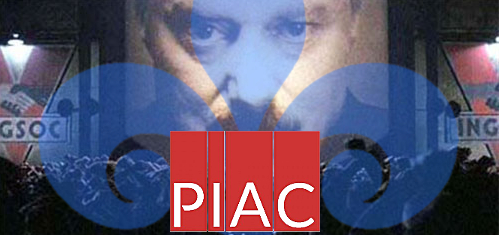 The Canadian province of Quebec’s controversial plan to IP-block online gambling sites is facing its first official challenge.
The Canadian province of Quebec’s controversial plan to IP-block online gambling sites is facing its first official challenge.
On Monday, the Public Interest Advocacy Centre (PIAC) filed an application (read it here) with the Canadian Radio-Television and Telecommunications Commission (CRTC), asking it to reject Quebec’s Bill 74 as an unconstitutional challenge to federal control over the internet.
In May, the Quebec legislature approved Bill 74, omnibus legislation that contained language compelling the province’s internet service providers to block the domains of online gambling sites not run by the Loto-Quebec gaming monopoly or any privately operated sites that Loto-Quebec chooses to license (such as Montreal-based Amaya Gaming’s PokerStars brand).
Civil libertarians have decried Bill 74 as an unprecedented act of online censorship while recent court rulings have affirmed the precept that telecommunications fall under federal jurisdiction, making Quebec’s nakedly profit-based protectionism liable to a constitutional challenge.
The application by PIAC, a registered nonprofit that specializes in telecommunications law and consumer protection issues, lists a host of telecom firms, large and small, as signatories. Many of these firms are based outside of Quebec, emphasizing the widely held concern that Bill 74 cannot be allowed to set a precedent for other provincial governments to follow.
THE ARGUMENTS
PIAC argues that Bill 74 directly conflicts with section 36 of the Telecommunications Act, “frustrates” the policy objectives in section 7 of the Act, presents a compliance challenge for Quebec ISPs and, last but not least, “threatens constitutionally-protected free speech.”
PIAC asks the CRTC to declare Bill 74 unconstitutional and to deny any application made by an ISP looking to observe Bill 74’s demands. PIAC also wants the CRTC to issue an interim injunction enjoining ISPs from blocking online gambling sites, or from even taking any steps precedent to blocking such sites.
Quebec has yet to issue IP-blocking orders to ISPs and PIAC notes that it could be “up to 18 months” until an official list of offending sites is compiled. However, PIAC expresses concern that ISPs and wireless service providers will “be forced to begin” to prepare for this eventuality by putting systems in place and hiring and training staff.
PIAC believes these preparations will hurt consumers because of the associated costs, which PIAC says will be passed on to consumers though rate increases or reductions in service and/or network performance. PIAC argues that such actions equate to curtailing of customers’ freedom of expression.
PIAC also scoffs at Quebec’s assertion that Bill 74 is intended to protect the health and well being of Quebecers, pointing out that Quebec “seeks not to ban online gambling but to corral it into a regulatory scheme and in fact into an internet portal (Espacejeux of Loto-Quebec) from which the provincial government can derive fees.”
IT WON’T WORK
PIAC also notes that Quebec’s plans are “practically unworkable.” Consumers could use different DNS servers than their own ISP or employ virtual private networks (VPN). And that’s not even accounting for operators’ use of mirror sites that have left countries like Russia playing an infinite game of domain whack-a-mole.
What’s more, Quebec has no regulatory or policy tools in the area of telecommunications and would therefore need the CRTC to enforce this law. PIAC believes the CRTC would be quickly fed up with being deluged with inquiries, applications and calls for enforcement.
THE STEEPEST OF SLIPPERY SLOPES
PIAC expresses concerns that if Quebec is allowed to implement Bill 74, “other provinces will follow suit for various reasons (fiscal or otherwise) in developing schemes of regulation and censorship that will impair free speech.”
PIAC notes that once ISPs have gone to the trouble and expense of installing their blocking apparatus, they aren’t likely to remove it, and companies will then look for ways to utilize their new tools. “This vastly increases the risk to consumers of future surveillance (either corporate or state) and destroys consumer privacy.”
PIAC concludes its argument with this well-crafted paragraph:
“There is no overwhelming policy goal that would justify the drastic step of approving blocking of certain content from the Internet, whether to enable Bill 74 or as a moral or public policy goal. The Commission has no evidence of such a need and PIAC submits that such evidence would have to be of an evil so overwhelming that it trumped the rights of all users of the Internet for otherwise lawful purposes and expression – an extremely high, most likely constitutionally impossible, barrier.”





